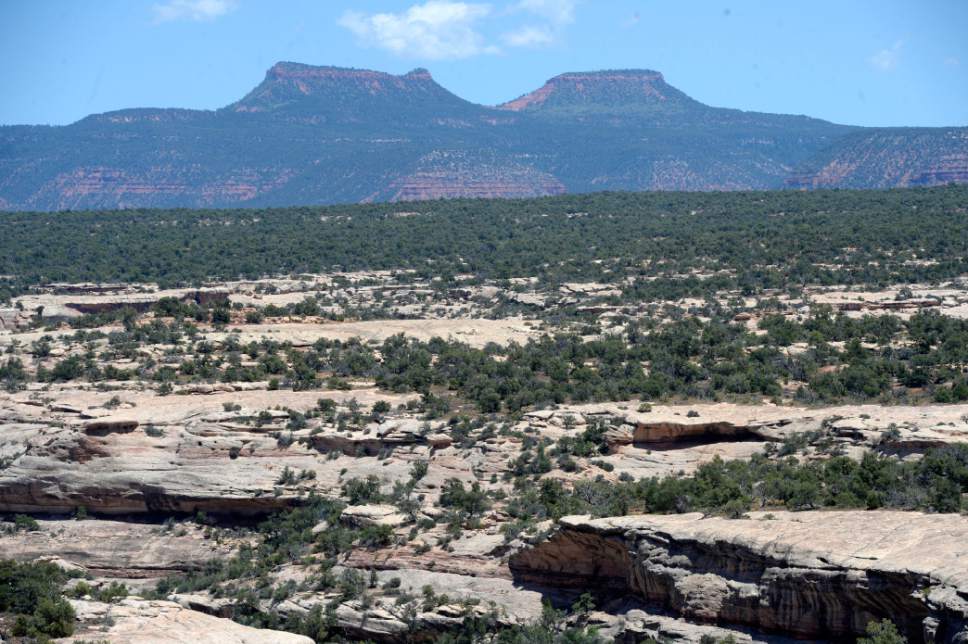This is an archived article that was published on sltrib.com in 2017, and information in the article may be outdated. It is provided only for personal research purposes and may not be reprinted.
The wailing, anger and protests by Utah and San Juan County politicians over the designation of the Bears Ears National Monument prove why the Antiquities Act is such a good idea.
Historically, politicians don't like federal parks and monuments designated in their states. That's why presidents and Interior Department secretaries with a more national perspective are usually forced to act.
While it may be difficult to believe now, Wyoming residents and officials fought Grand Teton National Park as hard or harder than Utah politicians have done with Bears Ears or Grand Staircase-Escalante National Monument.
The same happened with the Grand Canyon in Arizona and many other national parks.
Can you imagine a world without Grand Teton or Grand Canyon national parks, to name just two or many of the others that faced intense local opposition?
In Utah, Bryce, Zion, Capitol Reef and Arches all started out as national monuments created by presidential decree before Congress designated them as national parks.
The exception was Canyonlands in 1964, but that designation was not without controversy. While former U.S. Sen. Frank Moss ran the bill through Congress that won national park status for Arches and Canyonlands, some Utah politicians, including then-Gov. George Clyde and Sen. Wallace Bennett, were adamantly opposed.
The arguments against national parks and monuments are almost always the same, no matter where or when they are declared. Opponents usually insist the designations are locking up resources and preventing locals from using the land.
In the West, where the federal government owns large blocks of land, there is also small-town resentment of federal overreach into how those lands are managed.
That said, in actual on-the-ground management, there really won't be many changes at Bears Ears, where the known mineral and oil and gas reserves aren't great.
It appears traditional activities such as grazing, native wood gathering, fishing and hunting will continue much the same as they always have.
And the reality is that how the monument will be managed won't be that much different than what Rep. Rob Bishop, R-Utah, was proposing with his National Conservation Area approach.
The problem with Bishop's Public Lands Initiative wasn't with the conservation area, which was roughly the same size as what President Barack Obama ultimately designated as Bears Ears.
The issue was what conservationists and land managers would have to give up to get that designation, mostly taking away a future president's right to designate monuments in Utah and forcing federal agencies to allow more oil, gas and mining on lands outside the parks and monuments.
Local officials almost always fight these designations, even in places such as Canyonlands, Grand Teton and the Grand Canyon that are obvious world treasures.
It's hard to think of a national park designation anywhere in the U.S. that has devastated or even hurt state or local economies. The long-term benefits or parks and monuments almost always override local concerns.
In the case of Bears Ears, federal officials did come to Utah to listen to all sides of the debate before Obama acted. Contrary to what Utah politicians would have the public believe, there was more widespread support statewide and even locally for the monument than was reflected by political leaders.
Twitter @tribtomwharton



